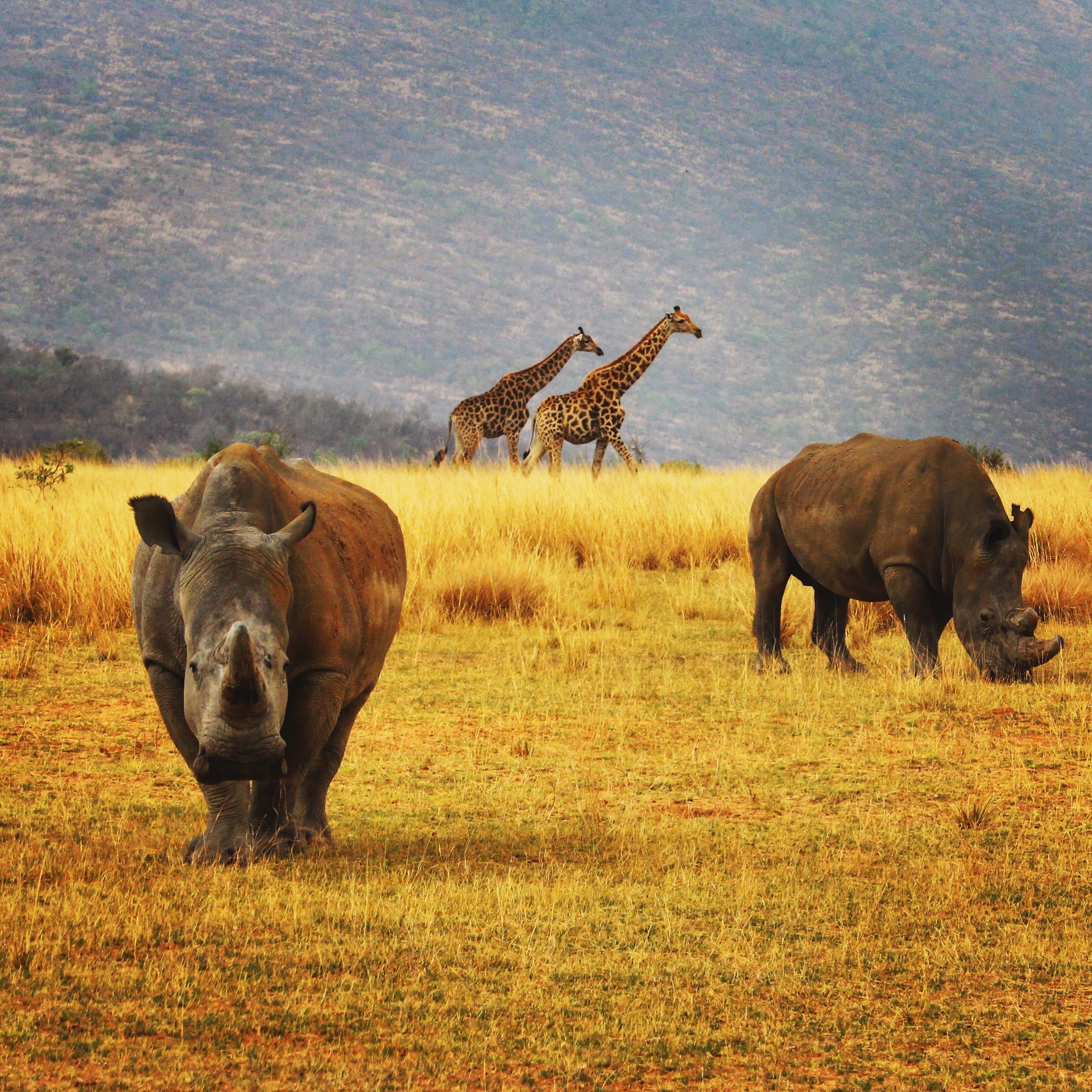
WE’RE NOT (QUITE) AS GOOD AS WE BELIEVE
Ninety-three percent of us believe that we are above average drivers. Of course that is not statistically possible but it is the wonderful thing about being human, persistently experiencing a world in which we are above average.
Another great thing about being human is that we get to create our own reality. Rather than experiencing an objective reality, our brain takes in loads of data and molds it into a reality that aligns with our mindset, our beliefs our past experiences, and our expectations.
This makes the world a much easier place to navigate, but it does also have some downsides. One downside is that very often it makes us worse at communicating with other people.

Achieving Your Goals or Succeeding with New Year's Resolutions
Research on New Year’s Resolutions shows that more than 50% of people set aside their resolutions by the end of the first month.
I’ve spent a fair amount of time looking at the research on how we can best attain our goals, or in the current case, our New Year’s Resolutions. Here is a quick summary of what some of the research tells us.

Our Overwhelming Need to Feel in Control
What is it about airplane crashes that so completely draw our attention and why are so many people so uncomfortable with flying? Blame it on our need for control and on some predictable cognitive biases.

Where Our Thinking Goes Wrong
The recent and still unsolved murders at the University of Idaho are horrifying and as much as I’m generally loath to use current, and tragic, examples, the investigation and public discussion highlight well cognitive biases that can slide unnoticed into our thinking and skew how we view a situation. Perhaps in this instance, where we are not the primary investigators, it doesn’t so much matter. But in the case of the investigators, it does, and in situations you face every day in your business and life it can matter a great deal when cognitive biases negatively impact your decision processes.
We are faced every day with information of uncertain quality, and we must make decisions with only partial and often ambiguous information. That’s not a problem, it’s just a fact of life. The problem comes when we decide to use this information and we fail to appropriately incorporate any uncertainty judgment into our thinking.

Why Once Great Brands Fail
How could such iconic brands and anchors of our culture simply cease to be? I am fascinated by the decline of these brands…Radio Shack, Blockbuster, Blackberry, Pan American, Borders, Tower Records (true loss there), and Kodak, to name a few. It is true some of these exist still as online ghosts of their former selves, but for the most part they are gone.
Part of that is capitalism. The old make way for the new, whether they want to or not. But could the old not become the new? With the right insight and right information all of these brands could have adapted, innovated, and survived.

Creating a Self-Healing Organization and the Wisdom of Porcupines
I was reading this morning about self-healing composites, materials that can repair themselves while still in operation. Picture an airplane wing healing its own cracks while you search for your seat. Pretty cool. I’ve also recently learned that porcupines are self-healing. They get a bit over adventurous, creeping too far out on weak tree branches, and thus often fall from trees. The result is they jab themselves with their own quills. Fortunately, the quills are coated in a natural antibiotic, so they heal quickly from their self-inflicted wounds.
Wouldn’t it be fantastic if we and our organizations could be similarly self-healing, especially so when our wounds are self-inflicted. And as far as corporations go, research seems to show that most wounds are self-inflicted. I believe, with the right mindset, our organizations can be self-healing, and in the process we can avoid inflicting further damage.

Are You Lying to Me? (Part 2)
Last week I had the opportunity to teach a two-day Cognitive Interview course in DC and then to spend the next three days working with the same fantastic group on Credibility Assessment, this time with the addition of Aldert Vrij and Sharon Leal, two of the absolute top researchers on deception and amazing people.
The research into deception detection is a fascinating field and has been progressing at an exponential pace over the past decade. Professor Vrij has very much been at the forefront of this wave with approximately 600 papers and 25,000 citations and Professor Leal is not far behind. The pace of the research is awesome, yet also leads to some challenges. I want briefly to mention some of these challenges, and I’ll then jump to discussing some real-time deception detection methods that do seem to work.

Are You Lying to Me? (Part 1)
Imagine, on a whim, you have proffered $44 billion to buy a social media platform, have a large fortune of your own at risk in the deal, and now are wondering if this was such a good idea. And you are sitting across the table from the social media executives, negotiating the deal, and trying to make sense of whether what they are telling you is true or a lie. How many bots really are on their network? Are they not making eye contact? Are they fidgeting? Do they appear nervous? Are they stumbling over their speech a bit? Are they looking up and to the right?
Guess what? Not one of those things are relevant to whether they are lying or telling the truth. Of course they are fidgeting, stumbling, and looking away…

The Power of Apology and Forgiveness
If we apologize genuinely and effectively, identifying and rectifying the affront, we can actually strengthen our team bonds and strengthen our standing within the team. If we fail to apologize — or do so half-heartedly or in a way that does not relieve the burden of offense — it is highly improbable we will receive any forgiveness. Instead, we damage our team, receive the negative outcomes Fehr et al describe, and thus damage our standing within the group.

Adaptive and Maladaptive Reaction to Threats
Through most of human history, humans have had to be very good at identifying and protecting against things that wanted to hurt us…things like saber-toothed tigers or perhaps the Mongol Horde. While similar environmental threats still exist, albeit on a different evolutionary scale, we generally no longer face such threats to our existence on a daily basis. But that doesn’t mean our brains have stopped scanning the environment for potential harm; on the contrary, our brains are hardwired for self-protection. However, the environmental threats we’ve evolved to identify and avoid have now been replaced by actual or perceived threats to our identity and thus our place in society.

Leadership and Intelligence Collection
Leadership is an inherently difficult role and especially so when challenging decisions must be made whilst balancing competing interests. Libraries have been filled with books and articles on this topic, and I hardly want to compete with those, but via the lens of an article recently published in Foreign Affairs, I want to look briefly at the communication and intelligence challenges leaders face.
The article, What the Mighty Miss: The Blind Spots of Power, by Ngaire Woods, focuses on Putin’s miscalculations in his invasion of Ukraine, his underestimation of how the Ukrainians would respond, and his overestimation of the strength of his military. While most leaders do not invade other countries, and most do not set themselves up as pariahs on the scale of Mr. Putin, this article does point out several danger zones in communication, intelligence collection, and decision-making that are relevant to leaders at all levels.

Culture Matters (Part II)
The individualist culture that dominates American culture is a direct result of the market economy that America has been at the forefront of developing over the past 200 years. We may not have created the first stock exchanges, but shortly after its origin in 1792, the New York Stock Exchange emerged as the clear leader in world financial markets.
Buying stock in a company you know little about, from a broker you do not know, is much different than the historical model of trading commodities with your neighbors. It requires a different type and degree of trust. So, while it may seem counterintuitive to how we may believe the market-driven business world operates, those in an individualist culture are very quick to give trust. We have to be or the market economy would not work as it does. Earning someone’s trust in our culture just is not that difficult compared to a collective culture where trust is earned over an extended period, through an ever-evolving web of reciprocity. Individualist cultures trust and then verify. Collective cultures, verify, verify again, and then consider trusting.

Culture Matters (Part 1)
There are those who theorize that culture does not matter in interviewing—that if you consider the person in front of you, not worrying about cultural differences, you’ll get the best results—but the research proves this theory incorrect. Culture matters, and if we deal with someone from a different cultural background solely through our own cultural lenses, we’re very unlikely to reach a profitable outcome.
Regardless of whether you are aware of it, or believe it matters, you grew up in a culture, and that culture shaped how you perceive the world. Every bit of information that comes your way and every thought that results, happens through the filters your particular culture has created and continues to create within you. The mix of culture that develops within you may be different than those around you, but it will share many similarities and it will always be there in the background churning through the data.

Why Mental Models Matter
As a leader in an organization, your intention, I assume, is to create a culture that promotes innovation and adaptation and makes employees feel like valued and important members of your team; but what if how you are communicating is creating a mental model of a workplace that is not aligned with these goals?
My niece and sister visited us in New Hampshire last week and when my niece got out of the car, I saw she was holding a book I recognized. She’s always holding a book and has read a rather impressive number and range of works and the book she had with her was “Deep Survival,” by Laurence Gonzales. If you do anything that might possibly put you in danger, even something as seemingly undangerous as hiking, this is the book you should read. It’s brilliant and I was quite excited to see her reading it as she becomes an accomplished mountaineer and climber, but my point here is neither survival nor my niece. It’s how this science-based book relates directly to organizational culture and communication. Gonzales’s book draws on an array of neuroscience to understand who survives life-and-death situations and it applies equally well to challenges we face daily within our organizations.

Why Not Ask Why?
“…half the time when someone asks you a question with a W, they aren’t really asking you a question. They’re making a statement in disguise.” (Amor Towles, The Lincoln Highway.)
This last week I was facilitating a group of undergraduate seniors on a tour of various law enforcement agencies in the Washington D.C. area. Some of them have never been to D.C. or on any trip like this and the conversation moves often to “why is it like this…and why isn’t it like that?” Why questions are awesome when we are that age and exploring new experiences and forging an understanding of the world. But in the world of investigative interviewing, whether corporate or law enforcement, as powerful as we may want to believe they are, why questions can be problematic.

Where Should You Place Your Confidence?
I receive about six different news updates in my email every day, and each seems to be trying to outdo the others with catchy and sometimes amusing (or misleading) headlines. Yesterday, the headline for one of them was, “90 percent of life is confidence”— a quote from an anime series I’ve not yet watched. That does sound good, and wouldn’t life be easy if that were true? In my courses I talk frequently about the importance of confidence; yet the headline made me think about all the ways confidence, and overconfidence, can lead us to suboptimal outcomes and how perhaps we can avoid this by refocusing where we place our confidence.

Are You in Control of Your Choices & Beliefs?
Up to 80 percent of the choices and decisions we make in life are made at the subconscious level. We don’t weigh the costs and benefits; we don’t consider the long-term implications. An answer simply arrives in our conscious brain, and we act on that answer. We believe it to be the best answer, and that it was made by our conscious, rational brain, so we rationalize until we’re comfortable with it, so long as it generally aligns with our beliefs and values…unless we consciously intervene and overrule the subconscious processes where most of this decision-making takes place.

Perspective Taking or Empathy
In any difficult conversation, and especially so when the stakes are high or we are under pressure, we tend to focus on our wants and needs—to see the situation through our lenses—and fail to take the time to see it from the perspective of the people with whom we are interacting. Any good photographer knows that if you change your perspective, you are likely to create something great and unexpected, and the same holds true for life and leadership. Take a different perspective and the outcome is likely to be better.

Toolboxes and Mindsets
Earlier this week, my peas and Japanese cucumbers had reached the stage where they needed trellising so I pulled out the fancy trellis a gardener’s catalogue had convinced me was going to be the most amazing thing. To my dismay, but hardly to my surprise, it would take me a full year to untangle the bright green plastic mess and it seemed not sturdy enough to support anything had I succeeded in untangling and stringing it up. I’m not annoyed at the catalogue; I’m annoyed at myself for failing to think like a gardener and instead thinking like someone who collects gardening tools and gadgets. I’d fallen prey to the “toolbox approach”, the thing I’ve most adamantly pushed back on the past ten or more years in the realms of investigating and interviewing.

Being Present in an Interview
If you are like me, the word presence, and worse, mindfulness, probably make you shudder a bit. They bring to my mind people who talk too softly, have a preference for gypsy pants, and might want me to perform a group rhythmic dance to help cure trauma I’m not aware of having. That all is pretty much the opposite of my thing. Still, being present and being mindful can make us so much better at interviewing and at our jobs and lives in general, and it doesn’t have to be such an annoying process to get there.
